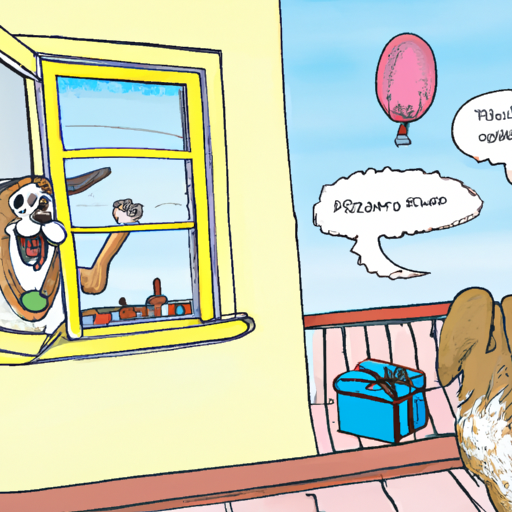Understanding Why Your Dog Barks
Barking is a natural form of communication for dogs. They may bark out of excitement, fear, or as a warning. However, when your dog seems to bark at everything that passes by, it can become a problem. Let’s explore why this might be happening.
- Territorial Behaviour: Your dog sees your home as his territory and feels the need to protect it.
- Fear or Anxiety: Your dog may be barking out of fear or anxiety from the unknown or unfamiliar.
How to Decode Your Dog’s Bark
Just as humans use different tones and volumes to communicate different feelings, dogs do the same with their barks. Paying attention to the sound of your dog’s bark can help you understand what they’re trying to communicate.
- Rapid, Continuous Barking: This could indicate that your dog senses imminent danger.
- One or Two Sharp Barks: This is typically a greeting bark.
- Prolonged, Incessant Barking: This could indicate that your dog is feeling bored or lonely.
Steps to Control Your Dog’s Barking
Controlling your dog’s excessive barking involves understanding the root cause and then addressing it in a compassionate, consistent manner. Here are some steps you can take:
- Identify the Trigger: Observe your dog to understand what triggers his barking. It could be other animals, people, or specific sounds.
- Remove or Address the Trigger: If possible, remove the trigger or help your dog become acclimated to it.
- Train Your Dog: Use positive reinforcement techniques to train your dog to stop barking on command.
Tips for Training Your Dog
Training your dog to stop barking at everything that passes by can be a challenging task, but with patience and consistency, it is achievable. Here are a few tips to help you through the process:
- Use Positive Reinforcement: Reward your dog for good behaviour. This could be a treat, a toy, or praise.
- Be Consistent: Consistency is key in training. Ensure all family members follow the same rules and commands.
- Seek Professional Help: If the barking continues to be a problem, consider seeking help from a professional dog trainer or behaviourist.
Dealing with Fear-Based Barking
Fear-based barking can be a bit more challenging to handle as it involves addressing your dog’s underlying fear or anxiety. Here are some strategies you can use:
- Create a Safe Space: Provide your dog a safe, quiet space where he can retreat when he’s feeling scared or anxious.
- Use Calming Techniques: Techniques such as swaddling, calming music, or calming pheromone sprays can help soothe your dog.
- Consult a Vet: If your dog’s fear or anxiety is severe, it may be worth discussing with a veterinarian. They may recommend medication or a referral to a behaviourist.
Tools to Help Control Barking
There are several tools available in the market that can assist in controlling your dog’s barking. Here’s a comparison of a few popular ones:
| Product | Description | Pros | Cons |
|---|---|---|---|
| Bark Control Collar | Delivers a mild shock when your dog barks | Effective, Adjustable levels | Can be too harsh for some dogs |
| Ultrasonic Device | Emits a high-pitched sound when your dog barks | Non-invasive, Safe | Some dogs may become desensitized |
| Citronella Spray Collar | Sprays a citrus-scented mist when your dog barks | Non-invasive, Safe | Some dogs may not respond |
FAQs
Q: How long will it take to train my dog to stop barking at everything?
A: It depends on the dog and consistency of training. It could take a few weeks to a few months.
Q: Can I use a muzzle to stop my dog from barking?
A: A muzzle can prevent barking, but it doesn’t address the root cause. It should only be used as a last resort and not for extended periods.
Q: My dog only barks excessively when I’m not home. What can I do?
A: This could be a sign of separation anxiety. Try leaving a piece of clothing that smells like you, using a pet camera to monitor and interact with them, or consider a pet sitter.
Remember, every dog is unique and what works for one may not work for another. Be patient, observant, and consistent, and soon you’ll see a positive change in your dog’s barking behaviour.



